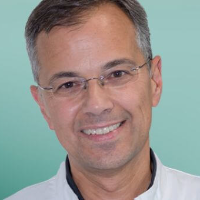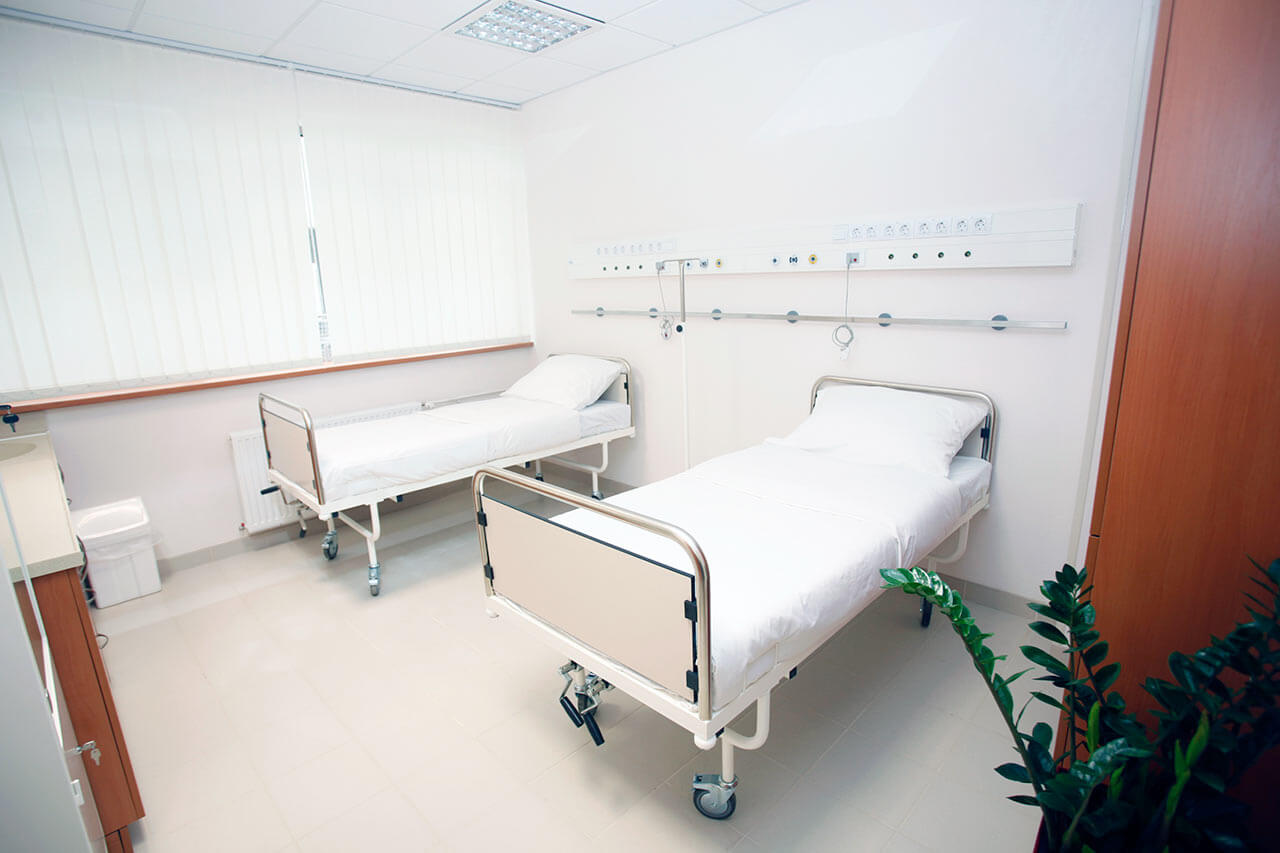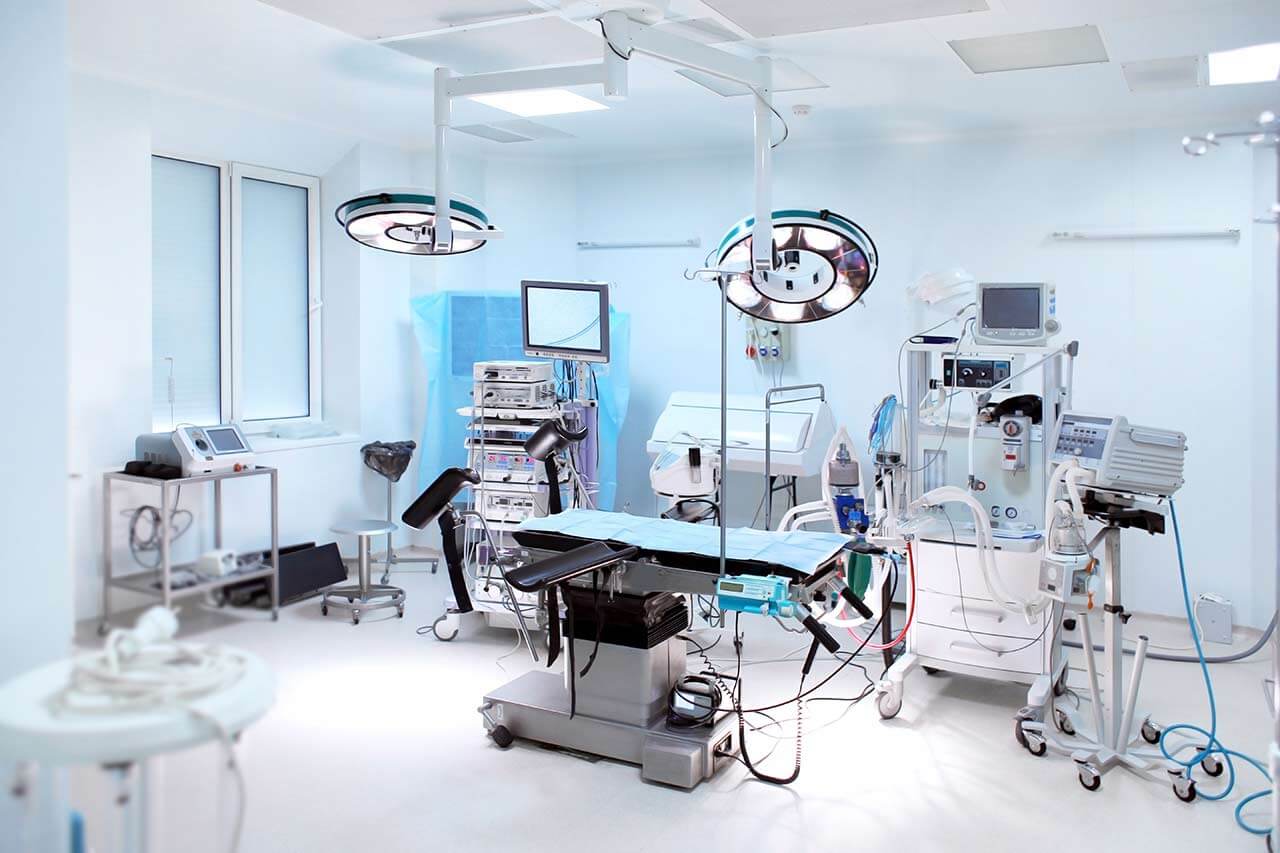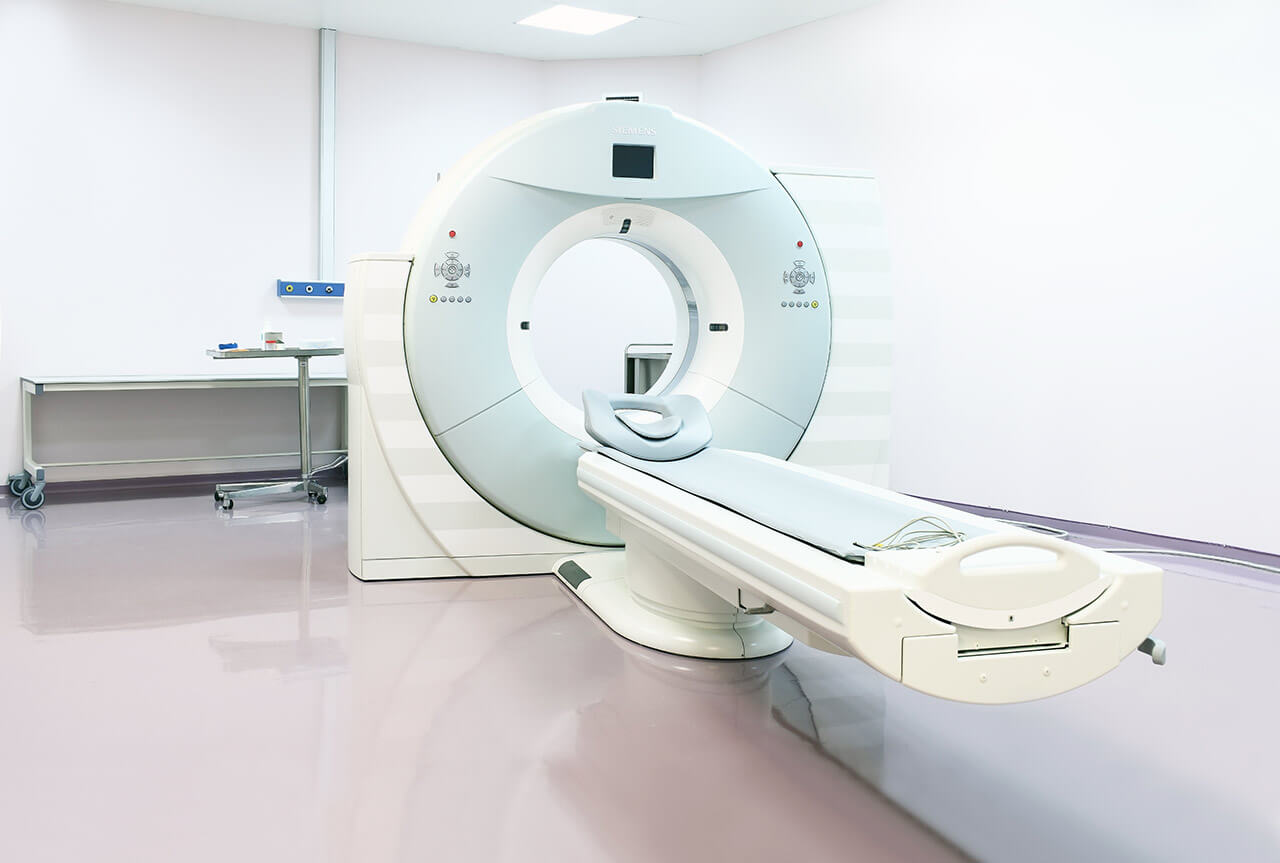
The program includes:
- Initial presentation in the clinic
- clinical history taking
- review of medical records
- physical examination
- laboratory tests:
- complete blood count
- general urine analysis
- biochemical analysis of blood
- inflammation indicators (CRP, ESR)
- indicators blood coagulation
- blood culture
- neurological examination
- CT/MRI scan
- neuropsychological tests (on indications):
- ENMG (electroneuromyography)
- EEG (electroencephalography)
- SEPs (somatosensory evoked potentials)
- VEPs (visually evoked potentials)
- BAEP tests (brainstem auditory evoked potential)
- lumbar puncture with subsequent bacteriological CSF examination,
CSF smear microscopy, inoculation, and other diagnostic techniques - consultation of related specialists
- symptomatic specific treatment
- the cost of essential medicines and materials
- nursing services
- control examinations
- full hospital accommodation
- developing of further guidance
Required documents
- Medical records
- Cerebrospinal fluid analysis, PCR (if avsilable)
Service
You may also book:
 BookingHealth Price from:
BookingHealth Price from:
About the department
The Department of Neurology and Epileptology at the Asklepios Hospital Barmbek Hamburg offers the full range of medical services in the areas of its specialization. The medical facility diagnoses and treats diseases of the brain, spinal cord, peripheral nerves, and muscles. The department also provides round-the-clock care for patients with urgent neurological conditions. Stroke patients are treated in a specialized Stroke Unit certified in accordance with the requirements of the German Stroke Foundation and the German Stroke Society. The department houses a laboratory for ultrasound scanning of the cerebral vessels and a laboratory for clinical neurophysiologic diagnostics. Among the primary focuses of the department's clinical practice is the treatment of Parkinson's disease and myasthenia gravis. The outstanding achievements of the department in these areas are confirmed by prestigious quality certificates. A particular focus of the department's neurologists is on epilepsy treatment. Multimodal pain management is also offered here for patients with chronic pain. The department's doctors have in their arsenal all modern methods of conservative therapy, providing the best results. Doctors from related medical fields may be involved in the therapeutic process, if necessary. The goal of neurologists is to normalize the state of the nervous system, thus providing patients with a high quality of life. The department is headed by Prof. Dr. med. Peter Paul Urban.
The department has vast experience in providing care to patients with stroke, one of the most common and life-threatening neurological pathologies. Stroke patients are treated in a specialized Stroke Unit with 10 beds. Each bed is equipped with a monitor, which continuously transmits the patient's vital signs, such as blood pressure, heart rate, respiratory rate, blood oxygen levels, body temperature, etc. All monitors are connected to a central monitoring system, which is carefully supervised by responsible doctors. The Stroke Unit is also equipped with CT and MRI scanners for urgent examination of the patient's brain. The specialists most often deal with ischemic stroke, which provokes a cerebral circulation disorder with damage to the brain tissue and impaired brain function. The most effective treatment method for ischemic stroke is thrombolysis. The essence of the therapeutic procedure is the injection of a drug into the blocked blood vessels in the brain, which dissolves the clot, thereby normalizing the blood supply to the brain. When performing thrombolysis, promptness plays a crucial role, so if doctors manage to perform thrombolysis within 4 hours after the onset of stroke, the patient has a high chance of maximum recovery. Once neurologists stabilize the patient's condition, early rehabilitation begins. This phase of treatment involves speech therapists, physiotherapists, neuropsychologists, and specially trained nursing staff.
The department's neurologists also specialize in the treatment of Parkinson's disease. A patient first undergoes comprehensive diagnostics using the very latest ultrasound methods, magnetic resonance imaging, neurophysiological diagnostic procedures, and other specialized examinations for particular symptoms. Nowadays, Parkinson's disease cannot be completely cured, but there are many ways to preserve a person's quality of life and slow down the progression of the disease. The department uses all the possibilities of drug therapy, including treatment with Duodopa or apomorphine. Drug therapy is complemented by physiotherapy, speech therapy, occupational therapy, music therapy, and specialized care. As part of physiotherapy, the LSVT Big method is used, which is effective for typical manifestations of Parkinson's disease, such as short step length and limited movements. It is worth noting that the department participates in scientific research, so it guarantees the most modern diagnostics and treatment. The department is also a member of the MedNet Parkinson's Disease Competence Center Group.
The department's team of neurologists diagnoses and treats patients with all forms of dementia. Early diagnosis and therapy are crucial in this pathology, which positively influence the course of the disease, contribute to the preservation of mental abilities, and thus improve the quality of life. During the diagnostic stage, doctors perform a comprehensive neuropsychological examination on an outpatient basis. If dementia is suspected, additional differential diagnostics may be prescribed. As for the treatment, the primary therapeutic method is drug therapy. Additional therapeutic measures like group psychotherapy, physiotherapy, speech therapy, occupational therapy, and music therapy also have a good effect.
The clinical tasks of the department's doctors also include the diagnosis and treatment of multiple sclerosis. Unfortunately, this disease is incurable, but there are many methods to improve the patient's health. Since the pathology has many nuances, an individual treatment strategy is always elaborated for the patient, taking into account their symptoms. The department's medical team offers various forms of drug therapy. In cases of acute relapses, treatment is carried out in accordance with the recommendations of the German Multiple Sclerosis Society (DMSG). For example, a high dose of cortisone alleviates symptoms and reduces inflammation, but in severe acute relapses, cortisone may not be effective. In such cases, the patient is prescribed plasmapheresis or immunoadsorption.
The department's therapeutic options also include epilepsy treatment. This neurological disease develops due to abnormal brain activity and manifests itself through seizures, the intensity and duration of which are individual for each patient. During severe epileptic seizures, the patient has excessive salivation and foaming from the mouth, sudden loss of consciousness, and sharp muscle spasms with twitching of the legs. In such cases, a person needs qualified medical care. It is noteworthy that not all patients with epilepsy require treatment, so if the patient's epileptic seizures are relatively mild, occur very rarely, and do not cause any discomfort in everyday life, treatment is not mandatory. However, in many cases, patients with epilepsy suffer from severe and frequently recurring seizures. In such cases, the first-line treatment becomes drug therapy with anticonvulsants. Patients with epilepsy are also advised to avoid alcoholic beverages, as alcohol significantly worsens the course of the disease and complicates the treatment process.
The department's main clinical activities include the following:
- Diagnostics and treatment of stroke
- Diagnostics and treatment of Parkinson's disease
- Diagnostics and treatment of multiple sclerosis
- Diagnostics and treatment of dementia
- Diagnostics and treatment of dizziness
- Diagnostics and treatment of chronic headaches
- Diagnostics and treatment of restless legs syndrome
- Diagnostics and treatment of epilepsy
- Diagnostics and treatment of neuromuscular diseases
- Amyotrophic lateral sclerosis
- Myopathies
- Myasthenia gravis
- Neuropathies and polyneuropathies
- Diagnostics and treatment of neurological conditions
- Diagnostics and treatment of other diseases of the nervous system
Curriculum vitae
Higher Education
- 1982 - 1987 Medical studies at the Johannes Gutenberg University Mainz.
- 1983 - 1987 Scholarship, German Academic Scholarship Foundation.
- 1988 Thesis defense, summa cum laude, Department of Neuroscience, Johannes Gutenberg University Mainz.
- 2001 - 2002 Distance learning "Healthcare and Social Service Management" at the Technical University of Kaiserslautern.
- 2004 - 2005 Distance learning "Healthcare and Social Service Management", Master of Arts, Witten/Herdecke University.
Professional Career
- 1988 - 1990 Internship, Department of Cardiology, University Hospital Mainz.
- 1990 - 1996 Assistant Physician, Department of Neurology, University Hospital Mainz.
- 1996 - 1997 Assistant Physician, Department of Psychiatry, University Hospital Mainz.
- 05.1997 Board certification in Neurology.
- 1997 - 2006 Senior Physician, Department of Neurology, University Hospital Mainz.
- 2000 Associate Professor. Subject: "Pathophysiology of dysarthrophonia in ischemic stroke".
- Since 05.2006 Head Physician, Department of Neurology and Epileptology, Asklepios Hospital Barmbek Hamburg.
- Since 2006 Head Physician, Asklepios Hospital Barmbek Hamburg; Professor, Asklepios Campus Hamburg, Semmelweis University in Budapest.
Research Interests
- Movement disorders, with a special focus on Parkinson's disease.
- Neurovascular diseases.
- Cognitive disorders (dementia).
- Clinical neurophysiology.
Prizes, Awards and Honors
- 1999 Richard Jung Prize, German Society for Clinical Neurophysiology and Functional Neuroimaging (DGKN).
- 2000 Poster Award, European Federation of Neurological Societies (EFNS).
- 2001 Boehringer Ingelheim Prize, Johannes Gutenberg University Mainz.
- 2001 Poster Award, German Neurological Society (DGN).
- 2003 Poster Award, German Neurological Society (DGN).
- 2004 1st and 2nd Poster Award, German Neurological Society (DGN).
- 2004 Poster Award, German Society for the Study of Pain (DGSS).
- 2004 Scientific Award, European Neurological Society (ENS).
- 2005 Honorary Presentation, European Neurological Society (ENS).
- 2011 Asklepios Award of the Year.
Membership in Professional Societies
- American Academy of Neurology (AAN).
- German Society of Ultrasound in Medicine (DEGUM).
- German Society for Clinical Neurophysiology and Functional Neuroimaging (DGKN).
- German Society for Muscular Diseases (DGM).
- German Neurological Society (DGN).
- German Multiple Sclerosis Society (DMSG).
- German Parkinson's Disease Association (DPV).
- German Stroke Society (DSG).
Photo of the doctor: (c) Asklepios Klinik Barmbek
About hospital
The Asklepios Hospital Barmbek Hamburg is an academic hospital of the University of Hamburg. The hospital was opened in 2005, and today it is one of the best and most modern medical centers in Europe. The priority areas of specialization of the medical facility are emergency medical care and comprehensive treatment of cancer, urologic diseases, gastrointestinal diseases, and pulmonary diseases, as well as abdominal surgery and thoracic surgery. The hospital provides patients with top-class medical services that meet international standards.
The hospital has 620 beds. More than 36,000 inpatients and about 74,000 outpatients are treated here every year. The patients' health is in the safe hands of a highly professional team of over 1,600 doctors and nursing staff.
The hospital offers high-quality diagnostic and therapeutic services and strictly follows current clinical protocols. The hospital boasts modern infrastructure and state-of-the-art medical equipment. The hospital is one of the few in Europe where patients are successfully operated on using the da Vinci surgical system. The hospital also houses well-equipped endoscopy rooms, cardiac catheterization laboratories, laser surgery rooms, and operating rooms for arthroscopic interventions. All these technical resources contribute to effective and, at the same time, minimally traumatic treatment.
It is worth noting that the hospital has vast experience in serving international patients. According to the Medical Travel Quality Alliance (MTQUA), the Asklepios Hospital Barmbek Hamburg ranks among the top three medical centers worldwide for medical tourism.
The medical center also holds the international DIN EN ISO 9001:2015 quality certificate, attesting to the excellent medical services provided. For its outstanding achievements in oncology and surgery, the hospital has been awarded certificates from the German Cancer Society (DKG) and the German Society for General and Visceral Surgery (DGAV).
Photo: (с) depositphotos
Accommodation in hospital
Patients rooms
The patients of the Asklepios Hospital Barmbek Hamburg live in comfortable single and double rooms. Each patient room has an ensuite bathroom with a shower and a toilet. The patient room furnishings include an automatically adjustable bed, a bedside table, a table and chairs for visitors, a TV, a radio, and a telephone. Wi-Fi access is also available in the patient rooms.
Patients can also be accommodated in enhanced-comfort rooms, which additionally include a rest area with upholstered furniture and a working area with a desk and a reading lamp. The bathroom in the enhanced-comfort rooms includes necessary toiletries, changeable towels, bathrobes, slippers, and a hairdryer. The enhanced-comfort rooms correspond to the standards of a high-class hotel.
Meals and Menus
The hospital offers tasty and balanced meals. Patients receive several menus to choose from and can see the menu in advance using a special mobile application. The hospital takes patients' food preferences into account and offers a wide range of dietary and vegetarian dishes. Breakfast, lunch, and dinner are served in the patient's room.
There is a cozy cafeteria on the first floor of the hospital where one can enjoy a cup of aromatic coffee or delicious tea with a dessert. The cafeteria offers a wide selection of snacks and salads.
There is a small store on the territory of the hospital where one can buy fresh fruits, yogurts, sweets, and magazines.
Further details
Standard rooms include:
Religion
There is a prayer room on the first floor of the hospital where patients can find solitude for prayer.
The hospital has an evangelical pastor who is happy to talk with patients and support them in the process of their treatment.
Representatives of other religions are available upon request.
Accompanying person
Your accompanying person may stay with you in your patient room or at the hotel of your choice during the inpatient program.
Hotel
You may stay at the hotel of your choice during the outpatient program. Our managers will support you for selecting the best option.





